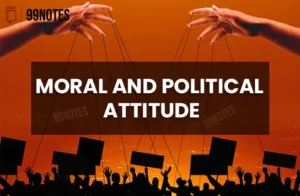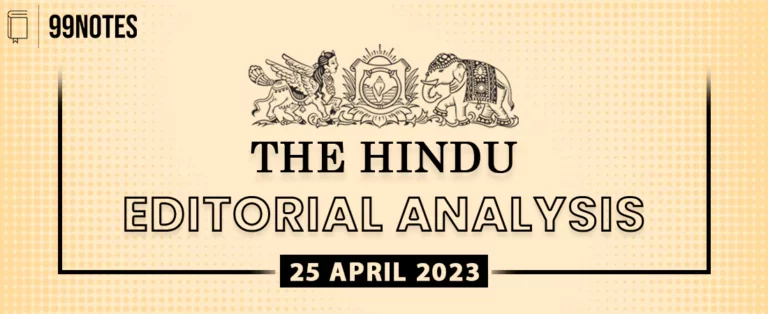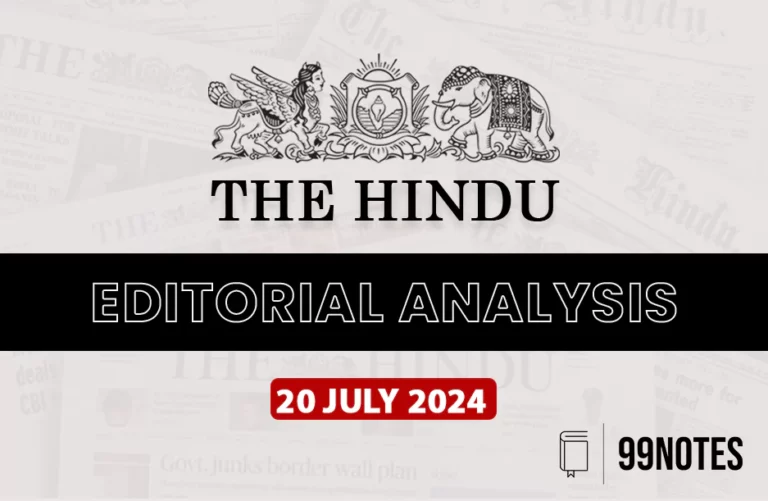4 December 2023 : The Hindu Editorial Notes PDF
The Hindu Editorial
4-December-2023
1. India, disability inclusion and the power of ‘by’.
Topic: GS3.
Global Scenario of Disability:
- Approximately 1.3 billion people worldwide live with some form of disability, equivalent to the entire population of India.
- 80% of people with disabilities reside in developing countries, and 70% of them live in rural areas.
Challenges Faced by Persons with Disabilities:
- Current systems designed for those without disabilities can lead to exclusion and contribute to higher instances of poverty, lack of education, limited opportunities, and various forms of discrimination.
- Social, economic, and gender vulnerabilities intersect, requiring careful consideration for equitable action.
Approach to Disability Inclusion:
- Importance of using “by” instead of “for” in disability inclusion initiatives, emphasizing the active involvement of persons with disabilities in the process.
Economic Impact of Disability Inclusion:
- Inclusion of persons with disabilities in the economy can boost global GDP between 3% to 7%, according to the International Labour Organization (ILO).
Employment Scenario and Stereotypes:
- Current employment scenario limits opportunities for persons with disabilities, perpetuating stereotypes and hindering their access to the labor market.
- Contravention of the United Nations Convention on the Rights of Persons with Disabilities, which advocates changing attitudes and perceptions towards persons with disabilities.
Challenges in Rural Areas:
- Persons with disabilities in rural areas face greater challenges, including limited access to education and employment.
- Some developmental schemes exclude them, viewing them as objects of charity rather than individuals with agency.
Importance of Private Sector Engagement:
- The private sector plays a crucial role in promoting the employment of persons with disabilities.
- Engaging employers’ federations and trade unions is essential for promoting inclusivity.
The SPARK Project:
- The ILO and IFAD, in collaboration with the Women’s Development Corporation in Maharashtra, implement the SPARK project.
- Disability Inclusion Facilitators (DIFs), identified from villages, lead the project and engage with communities, raising awareness and breaking barriers.
- Attitudinal shift observed at societal and administrative levels, highlighting the success of the SPARK project.
Call for Global Commitment:
- Achieving social justice requires the inclusion of persons with disabilities in all aspects of development, starting with rural areas.
- Evidence shows a bi-directional link between disability, poverty, nutrition, and hunger.
- Prioritizing the voices and needs of persons with disabilities is crucial for the global development agenda.
Question: In the context of global disability inclusion and economic empowerment, discuss the challenges faced by persons with disabilities in rural areas. How can governments and private sectors collaborate to enhance opportunities and address attitudinal barriers for persons with disabilities.
2. On re-criminalising adultery
Topic: GS2 – Indian polity.
Background and Legislative Development:
- The Parliamentary Standing Committee on Home Affairs has recommended the criminalization of adultery in the new criminal law Bills that aim to replace the Indian Penal Code (IPC), Code of Criminal Procedure (CrPC), and the Indian Evidence Act.
- The Committee proposes reinstating adultery as a criminal offense but in a gender-neutral manner, making both men and women equally culpable.
Committee’s Justification for Criminalization:
- The Committee argues that criminalizing adultery is essential to safeguard the sanctity of the institution of marriage, considering it a sacred entity in Indian society.
- It emphasizes that the earlier provision (Section 497 of the IPC) penalized only the married man, reducing the married woman to be considered the property of her husband.
Opposition’s Perspective:
- Opposition MPs, including Congress MP P. Chidambaram, oppose criminalizing adultery, asserting that marriage should not be elevated to the level of a sacrament.
- Chidambaram’s dissent note emphasizes avoiding state interference in the private lives of consenting adults.
Legislative History of Adultery Laws:
- The legislative history traces back to Lord Macaulay’s reservations about making adultery a penal offense, with an inclination towards pecuniary compensation.
- The Law Commission of India’s 42nd Report in 1971 deliberated on criminalizing adultery, with a strong dissent by Anna Chandy advocating for a review based on contemporary notions of women’s status.
- In 2003, the Malimath Committee proposed retaining adultery as an offense but in gender-neutral terms, citing the need to preserve the sanctity of marriage.
Overturning of Adultery Law by Supreme Court:
- A five-judge Constitution Bench of the Supreme Court unanimously decriminalized adultery in 2018 in the Joseph Shine versus Union of India case.
- The ruling considered adultery a civil wrong and a valid ground for divorce but struck it off the IPC, emphasizing privacy concerns and gender stereotypes.
Possibility of Legislative Overturn:
- While a Supreme Court ruling establishes a precedent, the Parliament can overrule judicial decisions through legislation.
- Legislative action would be valid if it alters the legal basis of the judgment, addressing the defects pointed out by the court.
- The caution is given that validating legislation should cure the defects in the previous legislation, and merely seeking to validate acts without addressing defects may be considered ultra vires.
Challenges and Concerns:
- The challenge with adultery being in the IPC is highlighted as two-fold: criminalizing based on the institution of marriage and treating women as property.
- Making adultery laws gender-neutral addresses the second concern but retains the issue of criminalizing based on marriage.
Potential Impact on Individual Autonomy:
- Opposition voices, including Justice Indu Malhotra, stress the importance of protecting individual autonomy in making choices concerning sexuality within the private sphere.
- Criminalizing adultery is viewed as an intrusion into the extreme privacy of the matrimonial sphere, and it is argued that it should be left as a ground for divorce rather than a criminal offense.
Question: Examine recent proposals to criminalize adultery in India, considering gender neutrality, privacy, and potential legislative impact on Supreme Court’s prior ruling.
For Enquiry

3 December 2023 : The Hindu Editorial Notes PDF

Moral and political attitude

Attitude

2 Dec 2023 : Daily Quiz

2 Dec 2023 : Daily Answer Writing

2 Dec 2023 : Indian Express

2 Dec 2023 : PIB

2 Dec 2023 : Daily Current Affairs

2 December 2023 : The Hindu Editorial Notes PDF

Ordinance Making Power of the President and Governor
December 2023 The Hindu 3 December 2023 : The Hindu Editorial Notes PDF The Hindu Editorial
2-December-2023
1. Improving the capability of the Indian state.
Topic: GS2 –…
attitude Moral and political attitude Attitude is the predisposition of a person to act towards a stimulus. We have already discussed various…
attitude Attitude Attitude is a learned predisposition or a tendency to respond consistently towards an object favourably…
Daily Quiz 2 Dec 2023 : Daily Quiz 2 Dec 2023 : Daily Quiz…
mains answer writing 2 Dec 2023 : Daily Answer Writing Mains Answer Writing
2-December-2023
1. “Without the participation and contributions of women, the…
december 2023 indian express 2 Dec 2023 : Indian Express Indian Express
2-December-2023
1) New India, new diplomacy
Context:
The article evaluates India’s…
December 2023 Pib 2 Dec 2023 : PIB PRESS INFORMATION BUREAU
2-December -2023
1. Codex Alimentarius Commission Praises India’s Standards…
Daily Current Affairs 2 Dec 2023 : Daily Current Affairs Daily Current Affairs
2-December-2023
1. India offers to host 2028 climate meet
Topic: GS3 – climate…
December 2023 The Hindu 2 December 2023 : The Hindu Editorial Notes PDF The Hindu Editorial
2-December-2023
1. Improving the capability of the Indian state.
Topic: GS2 –…
Executive Ordinance Making Power of the President and Governor Introduction :
The Constitution of India under Articles 123 and 213 provides the President and the Governor,…




